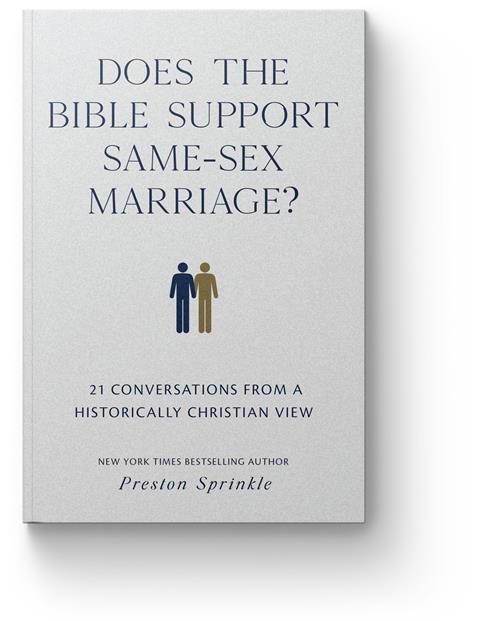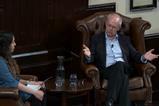
This is an outstanding book, which should be read by all on both sides of the current debate on sexuality in the churches.
The book’s many strengths mean it will become a vital resource for discussion. In fact, the way it is organised lends itself to being read together by people on either side of the debate.
At one level, the most helpful think about this book is that it gathers all the major challenges to the historic Christian understanding of marriage, as between one man and one woman, into one place, and offers well-researched and thorough answers to them.
But what is even more compelling is the way that Preston Sprinkle goes about engaging with the questions. In line with his long-term, sympathetic engagement with those who take an opposite view, his goal is to take the best arguments of his opponents, articulate them in a way that they themselves would recognise, specifically identify points of agreement, and only then offer a response. All this is rooted in his convictions about the best way to have a conversation, which he sets out at length in the opening chapters.
This makes it a book which you could give to someone who wants to see the churches change their teaching with confidence that it will engage them well. He often comments what a good argument this one is, or how he has sympathy for the other, and his most compelling comments are around the ways in which some LGB people have felt damaged by the church.
But alongside this, he repeatedly goes straight to the sources for hard evidence to support his approach. This is particularly helpful in addressing certain challenges, which rely on technical or expert knowledge and make far-reaching claims.
So, in answer to questions about views of sexuality in the ancient world, he goes to historical sources and demonstrates that, while many relationships were what we would class as abusive, there is clear evidence that this was not always the case. In answer to questions about Jesus’ apparent silence on same-sex relationships, he demonstrates the uniformity of view across Judaism, in which there was disagreement on a whole range of other issues.
On the question of ‘are people born gay?’, he goes straight to the research evidence, and makes a point of citing ‘gay-affirming’ scholars among whom there is broad agreement on the importance of developmental and environmental issues. The most powerful example of this comes when he addresses the claim that traditional church teaching has harmed LGB people, leading to higher levels of mental health issues and suicide. The actual research evidence is quite surprising, and raises some real questions.
Most people debating this subject do not know or do not have access to these resources, so this approach is invaluable.
And yet, all through, Sprinkle communicates this in a common sense and accessible way. Along with his substantial objective material, he repeatedly appeals to the intuition of the reader in a way that feels highly persuasive.
My quibbles are minor. At a few points, I think Sprinkle’s style of humour does not quite work with a UK audience. This is a small point, but I think could have been edited.
A more significant concern comes from his use of careful qualification. Many of his challenges are couched in terms of “I don’t really think it says that…” or “It is not clear that Paul really meant that…” or “The text is unlikely to mean this…” This reflects both his desire to be cautious, and not over-claim his case, alongside his awareness that, in the scholarly world, everything is contested, whether it is really contestable or not!
And that links to my other question: on a number of the issues, I think he could have made an even more robust argument. For example, I don’t think it is merely ‘likely’ that 1 Corinthians 6:9 is citing Leviticus 20:13; when you look at the Greek texts in parallel, it is a virtual certainty.
These questions notwithstanding, this is a fantastic book which clears the ground, enables engagement, and helps us towards needed clarity on this issue.

Does the Bible support same-sex marriage? by Preston Sprinkle is out now






































No comments yet